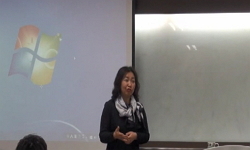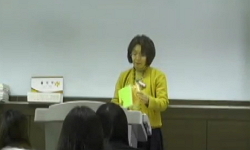Bang Jung-Hwan’s 「True Sympathy」 has mostly been criticized as a source of ‘irrational or non-realistic imagination.’ He is described as ‘a romantist who chose flowers over rice.’ However, this study clarified that the piece was a modifi...
http://chineseinput.net/에서 pinyin(병음)방식으로 중국어를 변환할 수 있습니다.
변환된 중국어를 복사하여 사용하시면 됩니다.
- 中文 을 입력하시려면 zhongwen을 입력하시고 space를누르시면됩니다.
- 北京 을 입력하시려면 beijing을 입력하시고 space를 누르시면 됩니다.

방정환의 「참된 동정」에 나타난 ‘빵과 장미’의 상상력 = The Imagination of ‘Bread and Roses’ in Bang Jung-Hwan’s 「True Sympathy」
한글로보기https://www.riss.kr/link?id=A107799066
- 저자
- 발행기관
- 학술지명
- 권호사항
-
발행연도
2019
-
작성언어
-
-
주제어
방정환 ; 「참된 동정」 ; 투르게네프 ; 「거지」 ; 『신청년』 ; 천도교 ; 개벽 사상 ; 빵과 장미 ; 아동문학 ; Bang Jung-Hwan ; 「True Sympathy」 ; Turgenev ; 「The Beggar」 ; 『Sincheongnyeon』 ; Chondogyo ; Idea of Dawn of Civilization ; Bread and Roses ; Children’s Literature
-
KDC
900
-
등재정보
KCI등재
-
자료형태
학술저널
-
수록면
9-39(31쪽)
- DOI식별코드
- 제공처
-
0
상세조회 -
0
다운로드
부가정보
다국어 초록 (Multilingual Abstract)
Bang Jung-Hwan’s 「True Sympathy」 has mostly been criticized as a source of ‘irrational or non-realistic imagination.’ He is described as ‘a romantist who chose flowers over rice.’ However, this study clarified that the piece was a modification of Turgenev’s prose poem, 「The Beggar」, and emphasized ‘brotherhood and equality’ just as the original. Turgenev is a Russian writer who is deeply rooted in the history of Korean proletarian literature. When 「True Sympathy」, which Bang published in 『Sincheongnyeon (Aug 1920)』 before entering children’s literature, is classified into a prose poem, Bang would be placed in the tradition of creation with inspiration from Turgenev followed by Kim Ki-Jin, Jung Ji-Yong, and Yoon Dong-Joo. Bang Jung- Hwan was one of the leaders of 『Sincheongnyeon』, a journal of the ‘secret’ Gyeongseong Youth Club and highly active from the emergence of modern literature. For Bang Jung-Hwan, social movements and literary movements were not two, but one and led him to Chondogyo’s ‘idea of dawn of civilization’ in pursuit of liberation. Therefore, 「True Sympathy」, a version of Turgenev’s 「The Beggar」, was not ‘flowers over rice’, but the imagination of ‘bread and roses’ that reminded the readers of the human rights of social weak.
동일학술지(권/호) 다른 논문
-
한국 근대아동소설의 ‘소영웅(小英雄)’ 변주와 『쿠오레』 번역
- 인하대학교 한국학연구소
- 김젬마 ( Kim Jemma )
- 2019
- KCI등재
-
1920년대 동요 형성과 정착을 둘러싼 경계와 배제-동요가 배척한 유행가-
- 인하대학교 한국학연구소
- 송현민 ( Song Hyun-min )
- 2019
- KCI등재
-
인문주의적 공동체의 존립을 위한 사고: 하나의 시론(試論)-‘중국 조선족’의 시선에 기초하여-
- 인하대학교 한국학연구소
- 박은희 ( 朴銀姫 )
- 2019
- KCI등재
-
세계화시대 중국 조선족교육의 새로운 패러다임을 위한 이론적 탐색
- 인하대학교 한국학연구소
- 박금해 ( 朴今海 )
- 2019
- KCI등재




 KCI
KCI KISS
KISS






